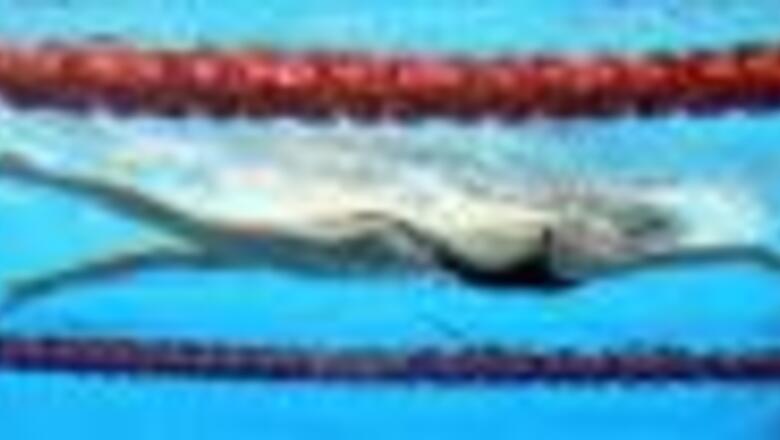
views
The 34 events
Men (17 events): Freestyle: 50m, 100m, 200m, 400m, 1500m; Backstroke: 100m, 200m; Breaststroke: 100m, 200m; Butterfly: 100m, 200m; Individual medley: 200m, 400m; Relay : 4x100m and 4x200m freestyle, 4x100m medley; Marathon: 10km freestyle (open water - first appearance at Olympics)
Women (17 events): Freestyle: 50m, 100m, 200m, 400m, 800m; Backstroke: 100m, 200m; Breaststroke: 100m, 200m; Butterfly: 100m, 200m; Individual medley: 200m, 400m; Relay: 4x100m and 4x200m freestyle, 4x100m medley; Marathon: 10km freestyle (open water - first appearance at Olympics)
The format
For the 50m, 100m and 200m in all styles there are qualifying rounds, semi-finals and finals. For the 400m, 800m, 1500m freestyle and relays the eight best times in qualifying go straight to the final.
Milestones
36 BC: Organised swimming competitions are held in Japan.
February 11, 1869: Creation of the first quasi-federation in London: the "Association Metropolitan Swimming Club", which defines the first rules of competition.
1896: Swimming features at the first modern day Games in Athens. Three events take place: the 100m, 500m and 1200m freestyle.
1912: Women make their Olympic debut (two events).
July 9, 1922: American Johnny Weissmuller, the future star of Tarzan in the cinema, becomes the first man to swim 100m freestyle in under a minute (58.6 sec).
February 28, 1964: Australian Dawn Fraser becomes the first woman to swim the 100m freestyle in under a minute (58.9 sec) in Sydney. On 27 October 1962 at Melbourne she had swum the longer 110m race in 59.9sec, which is further than the 100m but not officially a 100m race.
1972: American Mark Spitz records an outstanding feat by winning seven gold medals, in four individual races and three relay races, during the Games in Munich.
Stars
Dawn Fraser (Australia): The Australian won the 100m freestyle gold at three consecutive Olympiads: 1956, 1960 and 1964. On top of her eight Olympic medals she also set 28 world records and was the first woman to swim 100m in under a minute.
Mark Spitz (United States): The American set the remarkable landmark of winning seven gold medals and setting seven world records at the Munich Games in 1972. His achievement stands as the greatest ever in one Olympics, though he had previously won two Olympic titles in 1968. Shares another record of most Olympic golds (nine) with runners Paavo Nurmi and Carl Lewis and the gymnast Larissa Latynina.
Ian Thorpe (Australia): A global media star, Ian Thorpe was just 21 when he won his last individual Olympic gold in the so-called race of the century at Athens 2004 where he overcame Pieter van den Hoogenband and Michael Phelps in a spellbinding 200m free-style final. At those Games, he also defended his 400m title, while golds in the 4x100m and 4x200m events at Sydney 2000 took his total tally to five Olympic golds. He also won six individual world titles. He retired at the age of just 24 in late 2006.


















Comments
0 comment